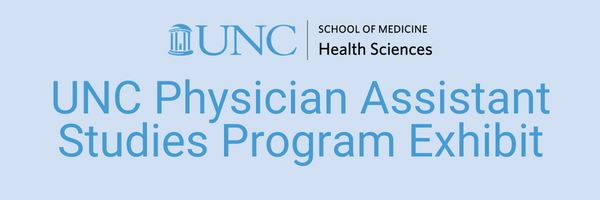New UNC Physician Assistant Program has Veteran Flavor
New UNC Physician Assistant Program has Veteran Flavor
by Katie Jansen, The Durham Herald-Sun, 11/10/2015 (Reproduced with permission of The Herald-Sun)
UNC Hospitals held a ceremony Tuesday honoring military veterans — but this year, it had even more to celebrate as the School of Medicine anticipated the launch of its new UNC Physician Assistant Program.
The PA program, a two-year program during which students earn a master’s degree, focuses on nontraditional students, especially those with military medical experience.
More than 800 people applied to be a part of the program’s first year, which will begin Jan. 4. About two weeks ago, after faculty interviewed prospective candidates, 20 applicants were offered seats in the class.
All 20 accepted the offer, said Paul Chelminski, division director of the PA program, which was accredited in September. Nine of the 20 were veterans.
The PA program has been in the works since 2012, when UNC’s School of Medicine announced a plan to create a program with funding from Blue Cross and Blue Shield of North Carolina.
Scholarship support is being offered through
h the William R. Kenan Jr. Charitable Trust Fund. All military students received scholarships ranging from $7,500 to $10,000.
Dave Manning, who retired from the military in 2013 after 20 years of service, said that after finishing his undergraduate degree in two years, he began to look for a program to continue his education.
While in the Navy, Manning went to Independent Duty Corpsman School, which allowed him to serve in remote locations and perform medical procedures without a supervising doctor.
He was the only medic on his ship during two combat deployments to Iraq.
“That’s where I really started developing my love for medicine more,” he said.
Manning, 43, said UNC’s program was his first choice because it was geared toward veterans. He said he thinks his military training will help him because it has instilled in him a sense of discipline and a strong work ethic.
Rich Cowan, who served in the military 10 years, worked as a medic while deployed in Iraq. He also underwent Special Operations medical training.
Cowan, 32, was also drawn to the program because of its focus on veterans.
“They kind of know what our experience is, they know what our background is, they know what we’re capable of doing,” he said.
Helping to guide the PA candidates through the program is Todd Williams, who retired from the military last month after 28 years of service.
Williams spent most of his time in the Special Forces. He left active duty to go to PA school, and he returned to active duty until he retired.
Now, he will work as the clinical coordinator of the PA program, as well as an assistant professor.
The program is good for veterans, Williams said, because it is mission-focused. The faculty looked at each individual and what they could contribute to the class.
Williams said the program was unique because of the value it places on nontraditional education and experience.
“They’ve been out there working so long,” he said. “What we’re trying to do is fill the gaps in the educational piece.”
Chelminski also emphasized the value of experience and said he hopes the PA program would provide veterans with the necessary credentials to “continue to serve their country as civilians.”
Military experience doesn’t always translate in the civilian world, Chelminski said. For example, veterans who were used to handling life and death situations could only serve as nursing assistants in the civilian world. Chelminski sees this as “a colossal waste of resources.”
The PA program plans to fill gaps not only for veterans, but for the entire state. Estimates predict a nationwide shortage of 150,000 physicians by 2020.
To help combat this shortage, PA students will complete their clinical trials in rural and underserved communities.
Cowan says this is a scenario veterans are familiar with from deployment.
“You’re going to places where people may have never had access to a doctor in their life,” he said.
Manning, too, said his time in the military required him to work clinically in austere environments.
Williams said the goal is to integrate the students in these communities so that after graduation, they’ll want to stay and continue providing service where it’s most needed.
